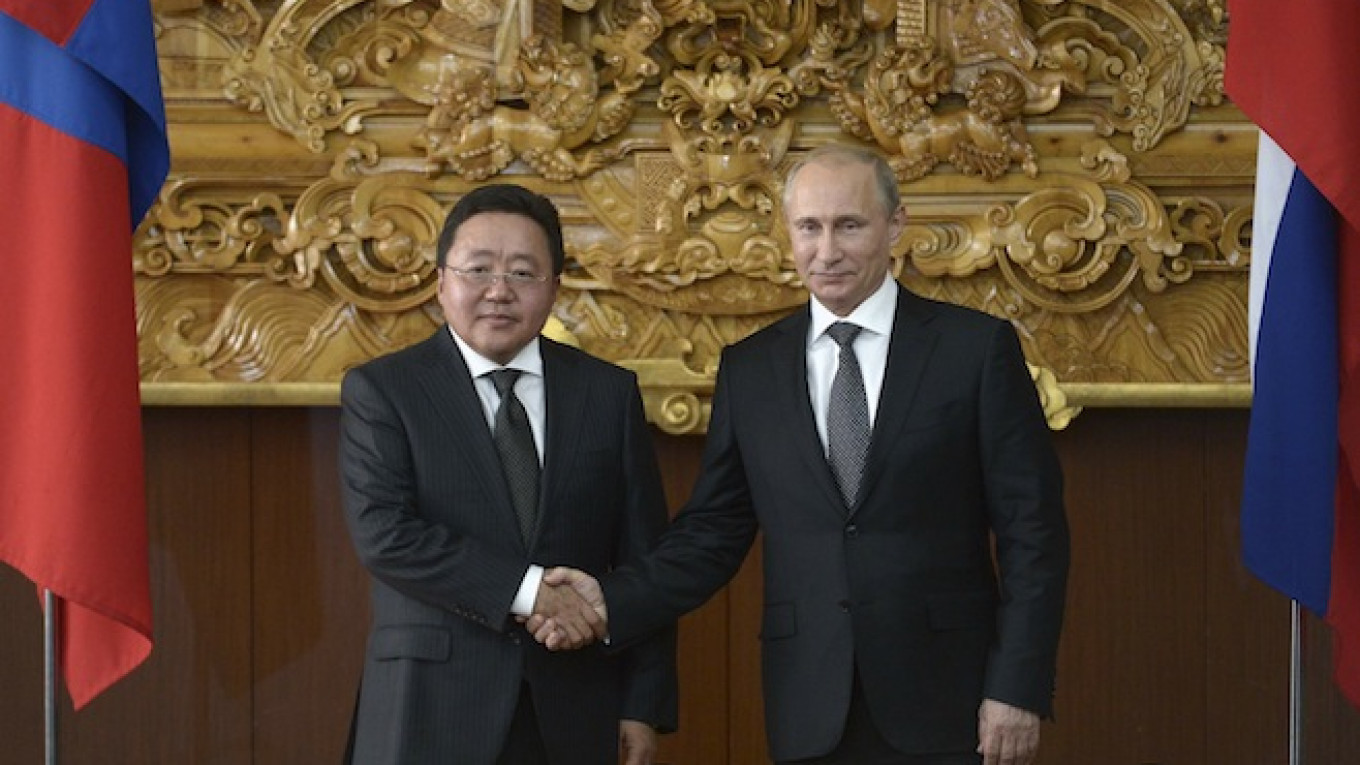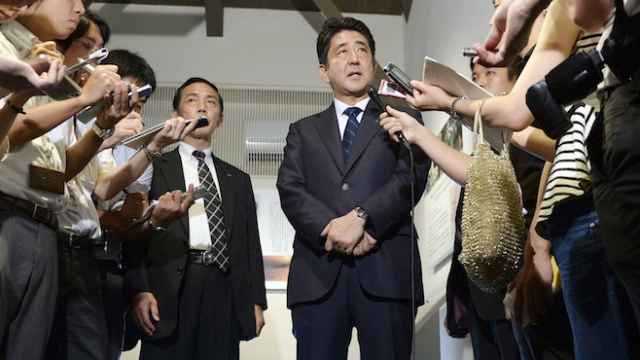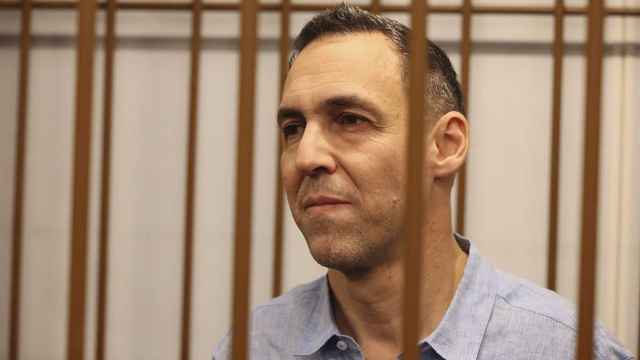President Vladimir Putin cited a 1939 Soviet victory over the Japanese army as a foundation of relations with Mongolia during a visit to Ulan Bator on Wednesday, despite a risk of upsetting Tokyo.
Putin's reference to the battles of Khalkhin Gol could be seen in Tokyo as a jibe following Japan's sanctions on Russia over the Ukraine crisis. Japan, locked in a territorial dispute with Russia over four Pacific islands, joined Western nations in imposing sanctions on Russia earlier this year.
"Today we are indeed marking together the 75th anniversary of one of the central events in our common history — the joint victory at Khalkhin Gol river," Putin said at the start of talks with Mongolian leader Tsakhia Elbegdorj.
"Historical memory, heroic events of the past, are by all means a good foundation to build Russian-Mongolian relations."
The victory in the Russian-Japanese conflict at Khalkhin Gol in Manchuria, a region occupied by Japan at the time and now part of Mongolia, helped fend off a possible Japanese invasion of Russia with Nazi Germany in 1941.
Japan has joined the West in denouncing Russia's actions in Ukraine but the government of Shinzo Abe has trodden a fine line by imposing sanctions on a smaller scale than those sought by Washington. Tokyo hopes this will keep relations with Russia from going into a deep chill.
Moscow upset Tokyo by carrying out military exercises in the disputed Kuril island chain last month.
The dispute over the islands has strained relations between Japan and Russia since the end of World War II, when Soviet forces occupied four islands at the southern end of the Kuril chain. The row has prevented the two countries signing a formal peace treaty.
A Message from The Moscow Times:
Dear readers,
We are facing unprecedented challenges. Russia's Prosecutor General's Office has designated The Moscow Times as an "undesirable" organization, criminalizing our work and putting our staff at risk of prosecution. This follows our earlier unjust labeling as a "foreign agent."
These actions are direct attempts to silence independent journalism in Russia. The authorities claim our work "discredits the decisions of the Russian leadership." We see things differently: we strive to provide accurate, unbiased reporting on Russia.
We, the journalists of The Moscow Times, refuse to be silenced. But to continue our work, we need your help.
Your support, no matter how small, makes a world of difference. If you can, please support us monthly starting from just $2. It's quick to set up, and every contribution makes a significant impact.
By supporting The Moscow Times, you're defending open, independent journalism in the face of repression. Thank you for standing with us.
Remind me later.






